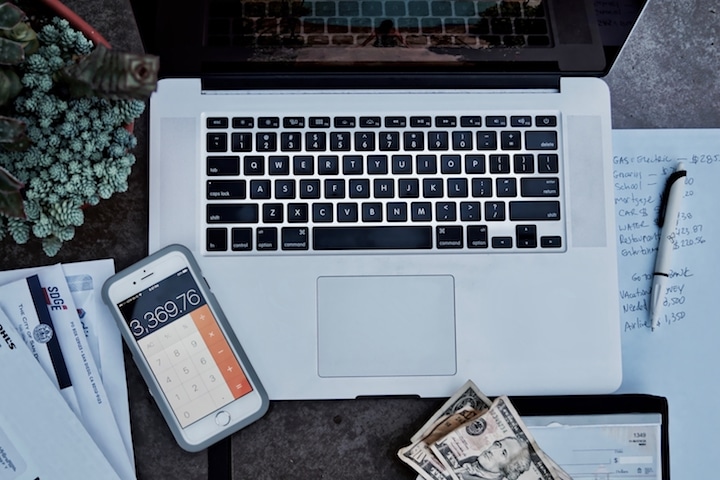After twelve years working as a CERTIFIED FINANCIAL PLANNER® professional with hundreds of clients, I’ve learned that two things in life are guaranteed:
- Unexpected things are going to happen
- They’re usually not cheap
Your car is going to break down. Your roof is going to leak. You might even lose your job and learn that a big fat severance package isn’t coming your way. You’ll experience your share of a million different costly scenarios, and having some extra cash stashed way in an emergency fund will be a lifesaver.
No one wants to think about expensive what-ifs, but having a cushion of cash can help soften the blow of life’s emergencies. That’s why I can’t overstate how important a healthy emergency fund will be for your financial future.
Here’s what an emergency fund is, how you can create yours (even if you’re paying down debt) and what to do if you end up using it (and don’t panic if you do, that’s what it’s there for).
What is an emergency fund?
An emergency fund is a savings account created for the sole purpose of stashing away money that you have access to in an emergency. We all define emergencies differently, but let’s call an emergency any time you find yourself in an unplanned situation that you didn’t budget for at the beginning of the month.
Hint: We aren’t talking about the day you wake up and see that your favorite band’s tour tickets just went on sale. We’re talking about must-haves, like when your car breaks down, your dishwasher suddenly explodes and floods your kitchen, or you need to pay a medical bill out of pocket.
Here are some general guidelines for your emergency fund:
- Aim to save enough money that you could get by for three to six months with no income. If you don’t know your monthly budget, create one by tracking your expenses for a month, or use a mobile app like You Need A Budget). Include monthly expenses: groceries, gas, recurring monthly bills. For the purposes of an emergency fund, assume you will likely be tightening your belt and skipping weekly date nights or other discretionary spending categories in your budget.
- If you are self-employed, you should save six to 12 months worth of expense. This will help you buffer irregular income.
- Keep your emergency fund in a separate account.
- Set a goal for your emergency fund and incorporate a contribution into your budget. For instance, let’s say your goal is to save $5,000. Create a realistic monthly goal toward that amount, say $200 to $400 a month. It doesn’t matter how much you save each month but commit to saving something, and treat it like any other bill you pay.
- Don’t freak out about having to use your emergency fund — that’s what it’s there for! Just work to rebuild it once you’ve dipped into it.
- If you get a bonus or salary increase at work, think about also increasing your commitment to your emergency fund, either by dropping in a lump sum or by setting a higher monthly contribution amount.
Why do I need an emergency fund if I have a savings account?
You may be thinking, “I don’t get it. Why do I need two savings accounts?” That’s a great question! Most of us have a savings account tied to our checking account at the same institution. Now, raise your hand if you’ve ever transferred money into your savings account and then later transferred money back into your checking account because you were a little short for that month. We’re all guilty of doing this little savings/checking song and dance.
Think of your emergency fund savings as a vital piece of your financial plan. You can continue to contribute your savings account for that luxurious vacation you want, and also contribute every month to your emergency fund.
Once you hit your emergency fund goal amount, feel free to back off your contributions and put more in your other savings accounts. It might be a few months or a few years until you need to tap into your emergency savings account, but the good news is that it’ll be there when you need it.
Best place for an emergency fund
It’s a smart idea to put your emergency fund in a place where you aren’t likely to touch it. Another advantage of separating it from your traditional savings is that you might find an opportunity to earn more interest.
High-yield savings account
High-yield online savings accounts have become the rage in the last few years as people have begun to notice that they offer much higher interest rates on your savings. A high-yield savings account is generally offered by a bank that doesn’t have a brick and mortar location but instead is an online-only bank. Online banks offer many of the same products traditional banks offer. You can still access and transfer your money, make mobile deposits, and so on, but you can’t physically drive up to the bank’s location.
Not having a physical location is good news for you because it means you could earn more interest on your savings. Whereas you might be earning .01% – .03% APY on your savings at your traditional bank, you might earn 1.5% – 1.8% APY on your savings at an online bank.
At the end of the day, more money in your pocket is always a smart money move.
Here are some banks that offer competitive high-yield savings accounts:
ROTH IRA
ROTH IRA’s have also become a popular place lately to store your emergency fund savings. If you qualify for a ROTH, you can contribute up to $5,500 in 2018 if you’re under 50 years old. Since any contributions you make to a ROTH are made on an after-tax basis, you can withdraw your contributions at any point in time without tax and penalty. You can’t, however, withdraw any gains that you’ve made on your contributions until you’re 59 ½ and have been contributing for at least five years. So, you could use your ROTH IRA as your emergency fund or part of your emergency fund as well as a retirement vehicle. Of course, it’s smart to be aware that if you withdraw from your Roth IRA before retirement, you may be limiting the potential of the fund to grow in the future.
Saving for an emergency fund when you’re short on cash
Saving for your emergency fund can be tricky if you’re living paycheck to paycheck or you have debt. It can be done though. The first task is to make sure you have a monthly budget in place. You can use an Excel spreadsheet, Post-It notes, or mobile apps like You Need a Budget, Mint or any other budgeting app to help you set one up.
There isn’t a right or wrong way to create your budget. You need to figure out what works for you and what will keep you motivated. However, an important piece of your budget is tracking what you’re spending every single dollar on. When you track your spending, you’re empowering yourself to make changes, so you don’t need to turn to even more debt. Plus, if you know where your money goes, it’s easier to uncover possible savings and make adjustments that can lead to savings.
Here are some ideas to get your savings plan in place:
- Break your emergency fund goal up into manageable mini-goals each month or each week even if it’s a small amount of money
- Find an expense that you can eliminate or cut back on and put those savings into your emergency fund each week
- Your emergency fund will ebb and flow, so remember to remain calm and keep saving
Remember, an emergency fund will help you avoid having to turn to a credit card and the cost that goes along with using it for something that you can’t already afford.
Here are some tips for those times when you do need to use plastic for an emergency expense:
- Use your credit card with the lowest interest rate and make a plan for paying off the balance in the shortest time possible
- Call your credit card issuer and ask if they have any low interest or 0% interest options
- Check out personal loan companies such as SoFi and Lending Club to see if you can get a lower interest option before you turn to your credit card
As your life grows, so should your emergency savings
Your emergency savings shouldn’t be in a “set it and forget it” account. Once you have a three-month fund, aim for six. Once you have a six-month fund, aim for a year. As your life grows, your financial responsibilities may grow, too. Check your emergency fund balance regularly and make sure it can cover your monthly expenses for the length of time that makes you comfortable.
An emergency is likely to be inconvenient and annoying, but knowing you’ve got the cash to cover it can minimize the annoyance factor — and allow you to enjoy that concert guilt free.
Shannah Compton Game is a CERTIFIED FINANCIAL PLANNER® professional with an MBA and is the host of the award-winning podcast, Millennial Money, where she shares totally relatable and easy to understand financial advice that will actually make you want to talk about money. Opinions expressed by the author are their own.
Haven Life doesn’t provide tax, legal or investment advice. This discussion is intended as general education only. We encourage you to work with your own personal tax or legal professionals and your financial advisor. Individuals involved in the estate planning process should work with an estate planning team, including their own personal legal or tax counsel.






